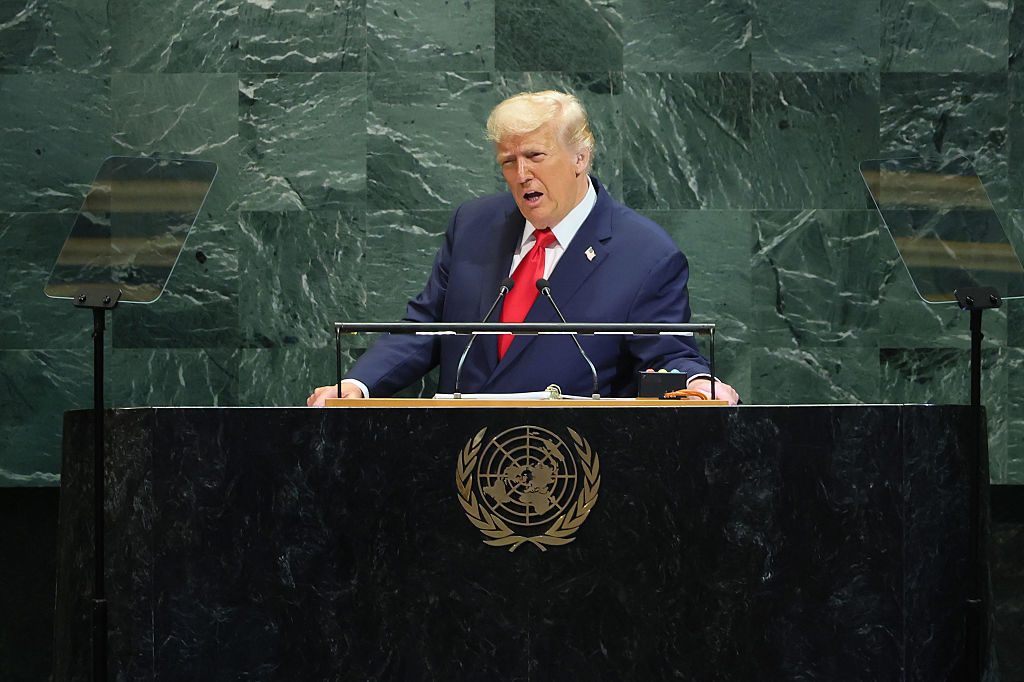President Trump now appears to have carried out his repeated threats to “walk away” from the Ukraine peace process. While he has blamed Russia and voiced support for Kyiv, his latest remarks at the UN yesterday suggest he has no intention of backing that up with additional US aid. Intelligence sharing will likely continue, but new weapons for Ukraine will now depend on European funding. The move also helps Trump neutralize opposition from isolationist elements within his base.
After his meeting with President Zelensky in New York, Trump wrote in a social media post that, “With time, patience and the financial support of Europe and, in particular, NATO, the original Borders from where this war started is very much an option [sic].” However, he did not say anything about US support.
He even suggested that Ukraine could gain additional land: “who knows, maybe [it can] even go further than that”, adding that Russia is in “BIG” economic trouble and now was “the time for Ukraine to act”.
If this remark was a considered statement by Trump, and not just impulsive bloviation, then one might almost think that it was an encouragement to Ukraine to commit suicide and get it over with. For if there is one thing that this war has demonstrated, it is the tremendous advantages that contemporary weaponry gives to the defensive. This approach has successfully stopped a Russian breakthrough, but it also helped Moscow blunt Ukraine’s 2023 offensive. As a result, the quickest route to a catastrophic Ukrainian defeat would be for Kyiv to exhaust its troops and materiel in another large-scale attack; yet, without such an offensive there is no realistic prospect of recovering lost territory.
The only way Kyiv could recover territory would be if the United States went to war with Russia — something Donald Trump has no intention of doing. He nonetheless risked widening the conflict when he suggested that European Nato members should shoot down Russian jets that entered their airspace. However, he explicitly declined to commit US forces, saying that would “depend on the circumstances.” By contrast, Secretary of State Marco Rubio urged that Russian aircraft be intercepted and only shot down if they actually launched an attack — a more conventional, restrained position.
We must hope that Estonian or Polish hardliners do not mistake Trump’s remarks for a green light. As the Georgians and others could attest, Washington has a long history of urging its allies into reckless ventures — only to fail to come to their rescue when the consequences arrive.
Trump left a sliver of hope for an early peace when he said that he would let the world know “in about a month from now” if he still trusts Putin. But for this deadline to work, the US or — improbable as it may seem — leading European countries will have to come up with a new and concrete peace plan. The existing demand for an early ceasefire without any of the other terms having been agreed has been repeatedly rejected by Russia. Some of Moscow’s existing demands (for example, that Ukraine withdraw from all the territory that it still holds in the Donbas) are equally impossible for any Ukrainian government to accept.
The only realistic basis for a peace settlement would be a trade-off: Russia drops these demands on Ukraine, while the West addresses Moscow’s broader concerns. That could mean a treaty halting further expansion of both Nato and the Russian-led CSTO, a ban on stationing European troops in Ukraine, the suspension of sanctions, and the return of frozen Russian assets.
Otherwise, the war will go on. Maybe Ukraine will continue to slow the Russian advance to a bloody crawl, but maybe — as the history of the First World War suggests — a long stalemate will be followed by the collapse of one side. In the present case, that side is very unlikely to be Russia. Furthermore, Ukraine is now totally dependent on European aid, and if the war goes on long enough, that aid may be in the hands of President Marine Le Pen of France and Prime Minister Nigel Farage of Britain. Does anyone really think they would be reliable long-term supporters of Ukraine?











Join the discussion
Join like minded readers that support our journalism by becoming a paid subscriber
To join the discussion in the comments, become a paid subscriber.
Join like minded readers that support our journalism, read unlimited articles and enjoy other subscriber-only benefits.
Subscribe